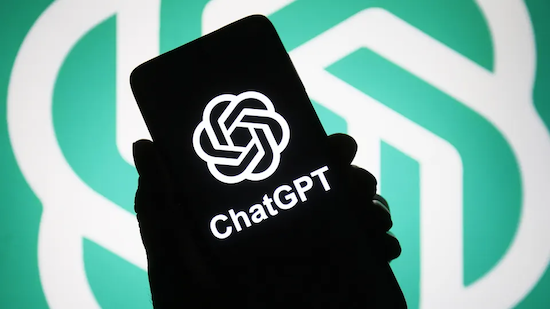

(quote)
Jobs, Not Jail: A Judge Was Sick of Sending Kids to Prison, So He Found a Better Way
By the year 2000, Judge John Phillips had long since lost count of the number of minors he had sent through the California penitentiary system for crimes committed during a violent, unguided, and hopeless adolescence. “You send these young people to prison, and they learn to become harder criminals,” he said once.
In 2003, he set out to find a better way—to get kids in an environment of support where they could pass through these difficult years with a hand on their shoulder. Phillips started Rancho Cielo at the base of a hill in the town of Salinas, utilizing an old juvenile detention center ironically, and with a board made up mostly of county supervisors, judges, and law enforcement leaders.
Rancho Cielo is a vocational training facility, culinary academy, and private school that only works with at-risk youth or youth living below the poverty line of $19,000 a year for a family of four.
At first, the organization running it would only take in adolescent offenders, but as the 21st century marched on, Salinas took several turns for the worse, and in 2015 saw more underage murders than anywhere else in the nation. The strategy changed, and Rancho Cielo would be out frequently passing by high schools, county jails, juvenile detention centers, homeless shelters, and foster homes, always asking if it were possible to take in the worst of the worst, hoping to interrupt the course of these youths’ lives and turn them toward a brighter future.
To that end, Rancho Cielo has a wide variety of programs, much of which is hands-on and kinetic, from the carpentry and construction program and vintage car repair, to beekeeping and equestrian care.
Each year, 220 students attend Rancho Cielo, and while some don’t make it, 84.8% of first-time offenders who enroll at Rancho Cielo never re-offend, compared to the 40% recidivism rate in the county. While all this tutoring, diversity, and infrastructure seems financially unsustainable, it costs just $25,000 to put a kid through Rancho Cielo, compared to the $110,000 it costs to house them in prison.
Build a home, fix a car, get a job: How an innovative school is keeping kids out of jail
SALINAS, Calif. – Superior Court Judge John Phillips remembers the day 23 years ago as if it were yesterday. A kid who had committed a murder stood in his courtroom, a young man who was still angry and unrepentant. Then the boy’s grandmother entered. “He broke down and started crying,” Phillips said. “He was just a kid. And I’m thinking, ‘I’m sending kids to prison for life.'”
Phillips, now 81, had seen it all in 13 years as a district attorney and then 21 as a judge. Shootings, thefts, assault. He handed out difficult sentences, but he was troubled by the stories of many children who went through his courtroom. “It’s very easy to pull a trigger if you don’t have any future, you don’t have any goals and you don’t have anything to look forward to,” he said.
That day in 2000 he became determined to do something different, something that would give the children he saw in court a chance to overcome the poverty, dysfunction, trauma and pain so many of them had experienced. To help them find a new way in life, a path toward college or a good-paying job.
Phillips remembered a broken-down, overgrown site up in the hills at the far eastern end of Salinas, a California farm town. The Natividad Boys’ Ranch was a moldering wreck, a juvenile incarceration facility that had been left to rot after it closed in 1982. Why, he thought, couldn’t it be turned into something to help the children of Monterey County before they arrived at a police station or stood before a judge?
Today, Rancho Cielo looks more like a high-end private school than a place of last resort for kids for whom regular high school isn’t working. New, colorful buildings abound, full of light-filled rooms with nooks to read in, workshops to tinker in and classes to learn in. There are horses to ride, bees to tend, bike paths to explore.
Each year, about 220 students in Monterey County ages 16 to 24 choose to come here. No one is placed against their will, and not all make it. But those who attend find themselves enveloped in a supportive, therapeutic but rigorous program that pushes them to places they never imagined possible.
The audacious effort succeeded. The Ranch opened in 2003. Though 40% of young people who go through the county’s juvenile justice system have another encounter with the law, 84.8% graduating from Rancho Cielo do not re-offend. (That’s among students who had already encountered the criminal justice system.)
And instead of the more than $110,000 a year it costs to incarcerate a juvenile in the county, Rancho Cielo costs $25,000 a year. It has become so successful that increasingly students are choosing it not because of brushes with the law but because they want a more hands-on program that will give them the support they couldn’t get in a traditional high school.
The school provides intensive support and intervention to help students heal and succeed. It’s the kind of support middle-class families might take for granted, but for many of these students it’s new.
If they need clothes, they get clothes. If they need transportation, they get a bus pass. If they need help with math or English or any other subject, they get it. Many students didn’t have the money to pay for drivers ed, which isn’t typically offered in California high schools anymore. Rancho Cielo created a driving instruction program and last year drove 38 students to the DMV, where they earned their licenses.
Enrichment programs teach everything from horseback riding to bike riding, along with the chance to work with the school’s beekeeper or fish in one of its ponds. “At the Ranch, they help you. They don’t expect you just to know how to do things, they teach you, they support you. They kept me going and they believed in me. They made me feel proud of me.”
(unquote)
Image courtesy Rancho Cielo and Nic Coury / USA Today






